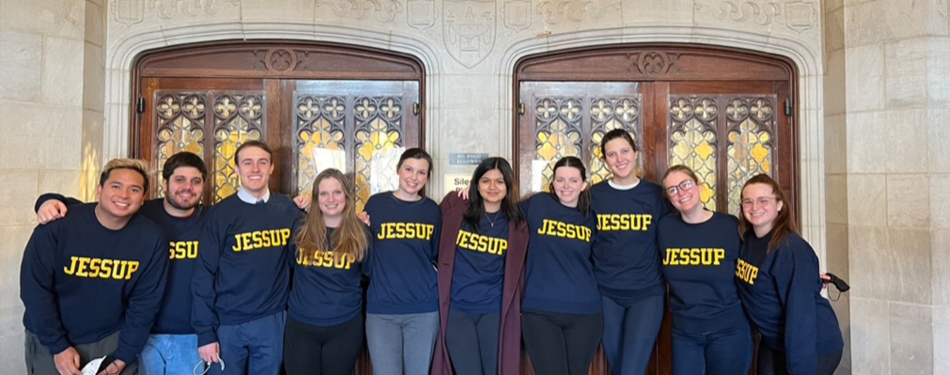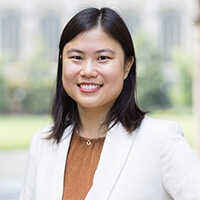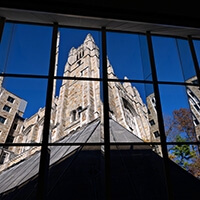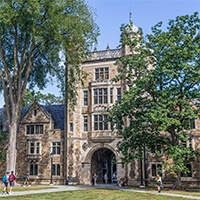A team of Michigan Law students recently posted the Law School’s best-ever finish in an international moot court competition—and with most of the team poised to compete again in 2023, they’re just getting started.
The Philip C. Jessup International Law Moot Court Competition, which models a case put before the International Court of Justice, is the world’s largest moot court competition. As many as 700 law schools participate annually from all over the world. The 2022 event, which was held remotely, featured a hypothetical international incident related to cyberattacks and diplomatic immunity.
The team of five oralists was led by captains Victoria Walker and Lauren Fleming, both 2Ls, and seven additional students volunteered their time as advisers during preparation. The team scored in the top 10 in both the oral competition and on the written memorial—which are scored separately—during the US National Preliminary Rounds.
Steven Ratner, the Bruno Simma Collegiate Professor of Law, said that the 2022 team set a “new standard [for future teams] to build on.”
In contrast to last year, when most of the team members were graduating 3Ls, the majority of the team plans to return to Jessup in 2023. “I made some of my best friends in law school through the team, so I always knew I would come back,” said Fleming. “My experience as an oralist and a team leader was incredibly rewarding. I got to share my excitement about international law with peers who have similar interests, and help build up a successful team that I really hope will carry on and keep improving Michigan Law’s Jessup program.”
Jessup competitors spend months researching a hypothetical case, which provides an opportunity to deepen their knowledge of international law, improve their research skills, gain confidence in public speaking, and form lasting friendships. “I came to Michigan with an interest in public international law, and Jessup has enabled me to pursue this outside of the classroom,” said Walker. “I learned exponentially more by researching alongside my teammates and working with our coach and faculty, and my involvement in the team has really helped me to think about international legal and political situations in new ways.”
For the first time, the team enlisted the help of an official coach: Talin Hitik, a Chicago-based attorney who is an academic affiliate at the Law School. “I love this competition and have been involved in it since I was in law school, as an administrator, competitor, judge, and coach consultant for various teams around the world. With all of the hard work that we put in, Michigan Law is well-positioned to not only perform extremely well in next year’s competition but build a strong and enduring Jessup program that will succeed for many years to come,” Hitik said. “This competition is all about giving law students the tools to carry the mantle of the peaceful resolution of international disputes, which we need now more than ever. I have no doubt that many alumni of Michigan Law’s Jessup teams will contribute to this critical legacy.”
Beyond the practical training, the Jessup competition also proved valuable in other ways.
“Jessup showed me just how much I can rely on my fellow Michigan Law classmates,” Walker said. “Over the course of this year, my teammates did countless hours of research, took on new responsibilities, and consistently went above and beyond to support each other. We all put in a lot of work, but it has really paid off and has made Jessup a defining part of my law school experience.”
A previous version of this article implied that a total of 12 students participated in the competition; it has been updated to clarify that seven students supported their classmates as advisers during preparation but were not part of the Jessup team.







